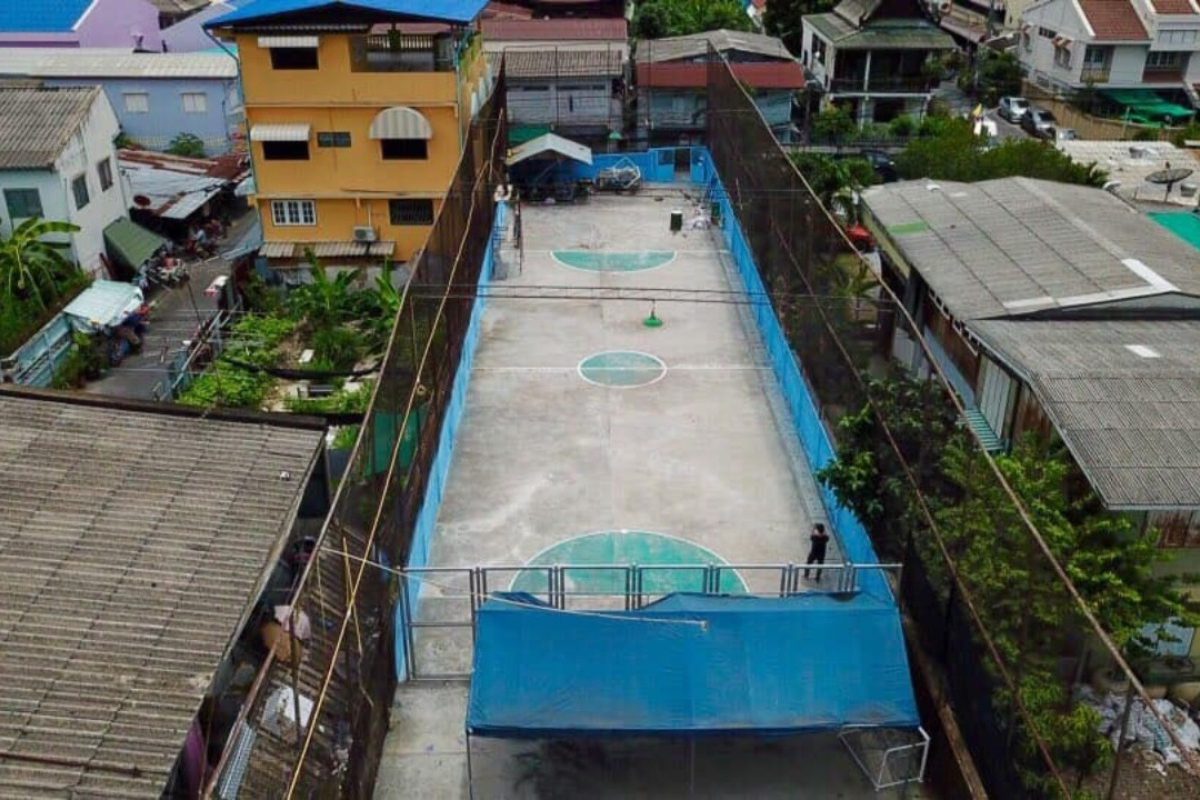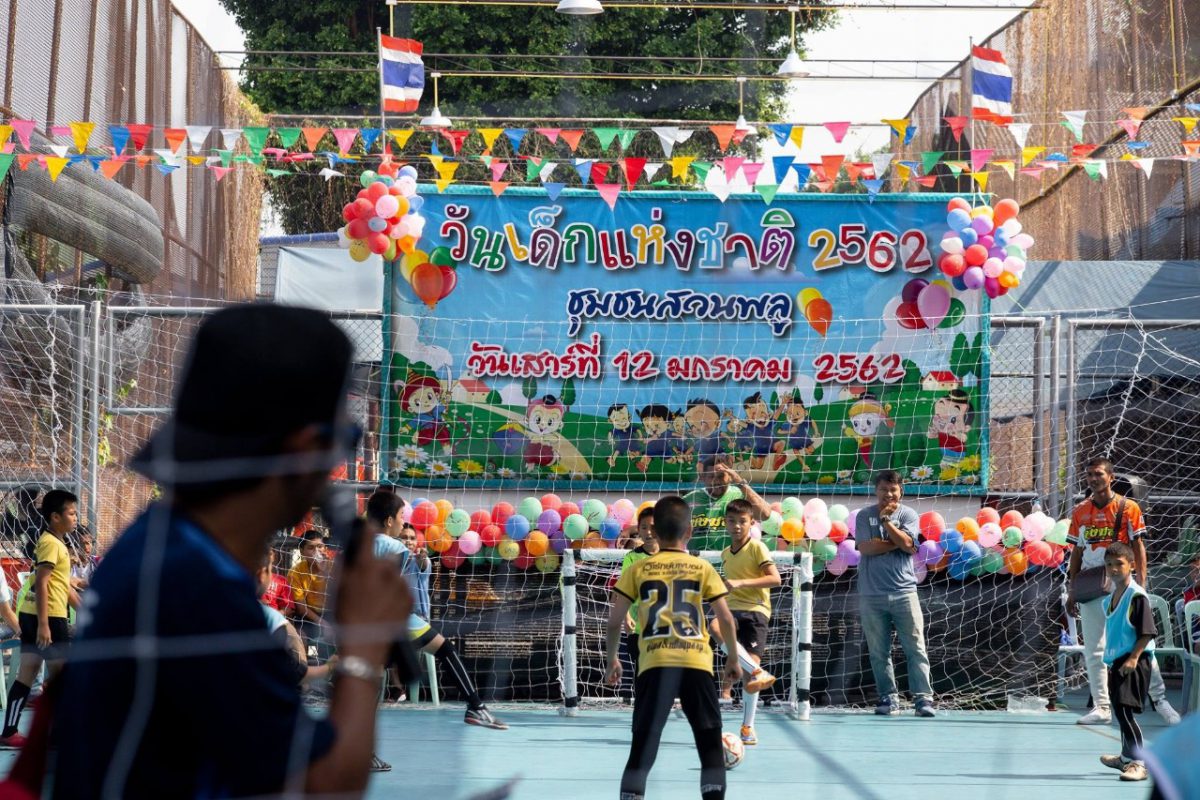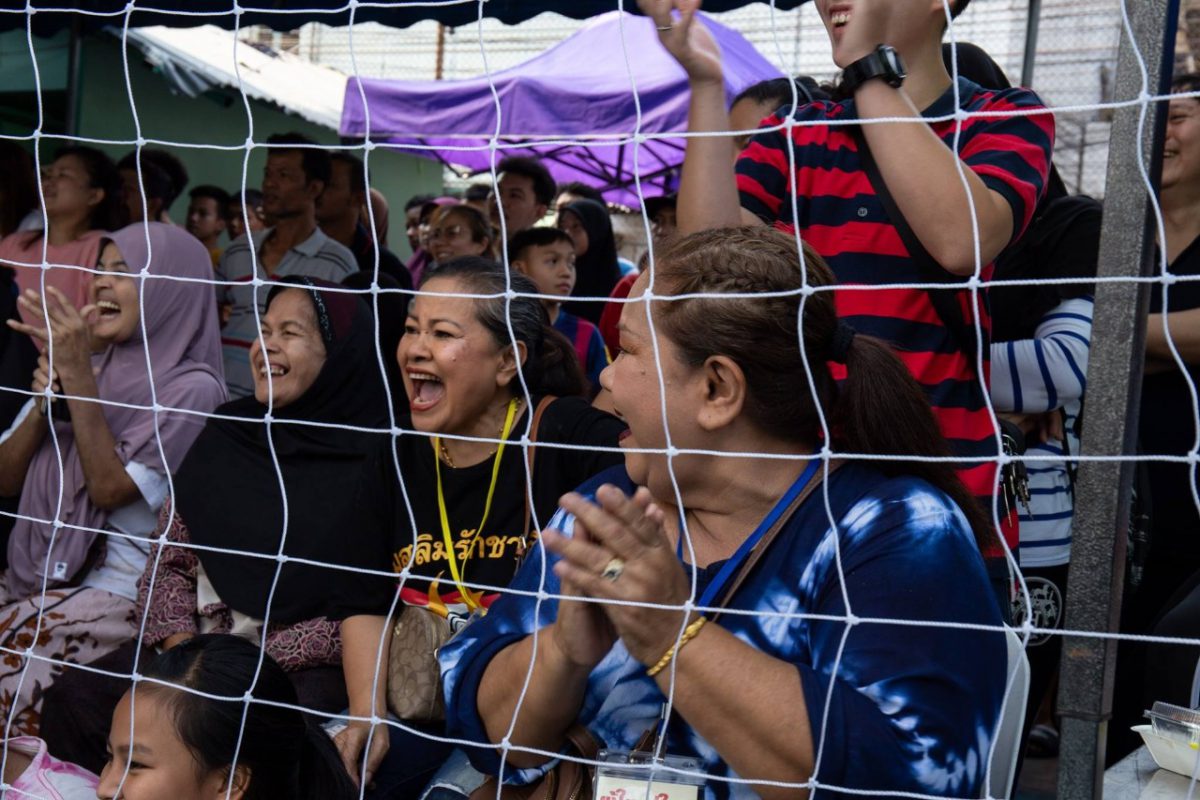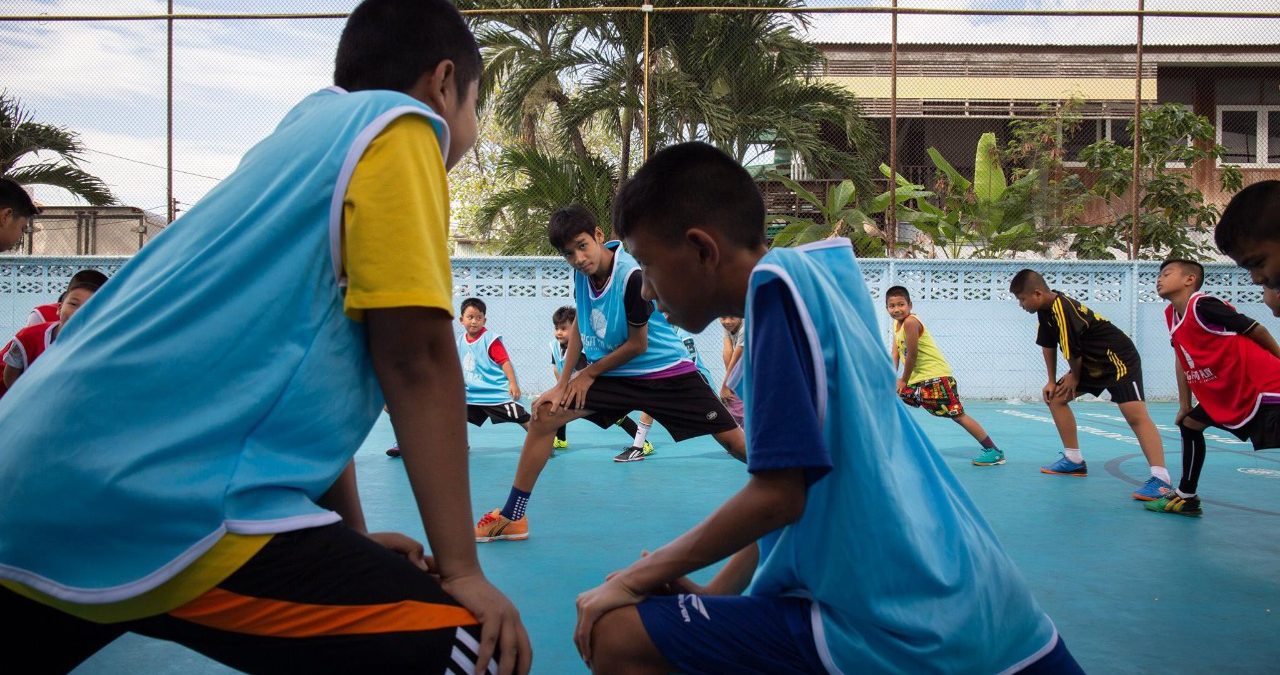
Keep up with our latest news and projects!

In Thailand, crime and anti-social behaviour amongst young people is a growing problem, due to limited attention within the education system and a lack of social services to support vulnerable youth. The juvenile crime rate here is higher than in neighbouring South Asian countries. Gang crime, petty theft and drug abuse are all on the rise, particularly within Bangkok (UNODC, 2015). In addition, in Bangkok, just like many other Asian cities, there is a lack of functioning, safe and accessible spaces to deliver sports-based approaches that can have a long term impact upon youth and their local communities.
The government, United Nations and other organisations recognise the importance of sport and play to act as a prevention and/or rehabilitation mechanism for at-risk youths. This includes using football to promote life skill development to help young people practice non-violent conflict resolution methods, as well as soft skills, such as confidence, leadership, communication and interpersonal skills. All of these outcomes have significant impacts on social inclusion, community building and youth civic engagement. They can help young people become more informed, and engage more meaningfully with each other and with larger society.
With funding from the UK, Right To Play Thailand Foundation has partnered up with urban communities in Bangkok to initiate the Not Just for Kicks project. This multi-year project provides access to safe play spaces and develops youth leaders who harness the power of football to support the positive and healthy development of young people in Bangkok.
Right To Play supported the rehabilitation of a number of existing play spaces within Bangkok to provide safe and accessible areas for young people to play football and other games. The project needs came from the community and the actual restoration was carried out by local builders and community members, youth and children. The spaces are now used for various activities and have become areas that youths and community members manage on behalf of their local communities during and beyond the life of the project. Rehabilitation included cleaning and improving playing surfaces, painting areas to make them more attractive to users, installing fencing and shading nets, and provision of sports equipment. Now, these arenas have become multi-purpose play spaces for a different range of children and youth. They include futsal pitches, basketball courts, badminton areas, pétanque, playgrounds for younger children, and even a performance stage.
As part of the project, weekly football sessions have been delivered to children and youth by youth leaders (who were trained as part of the project), community coaches and Right To Play, utilising RTP’s Football for Development resources and newly developed games and drills. Here, football is used to facilitate participatory learning to improve life skills that can prevent participation in crime and anti-social behaviour.
A cohort of youths from the target areas have been trained as youth leaders to lead their peers in football-based learning activities and the use of Reflect-Connect-Apply (RCA) questioning techniques to develop life skills. Specific football drills have been tailored to teach communication, teamwork, leadership, problem-solving, and conflict resolution skills. At the end of every game, youth leaders use RCA, which asks the kids to reflect on what they learned, connecting this to their wider life experiences and thinking about how to apply the learnings in similar situations.
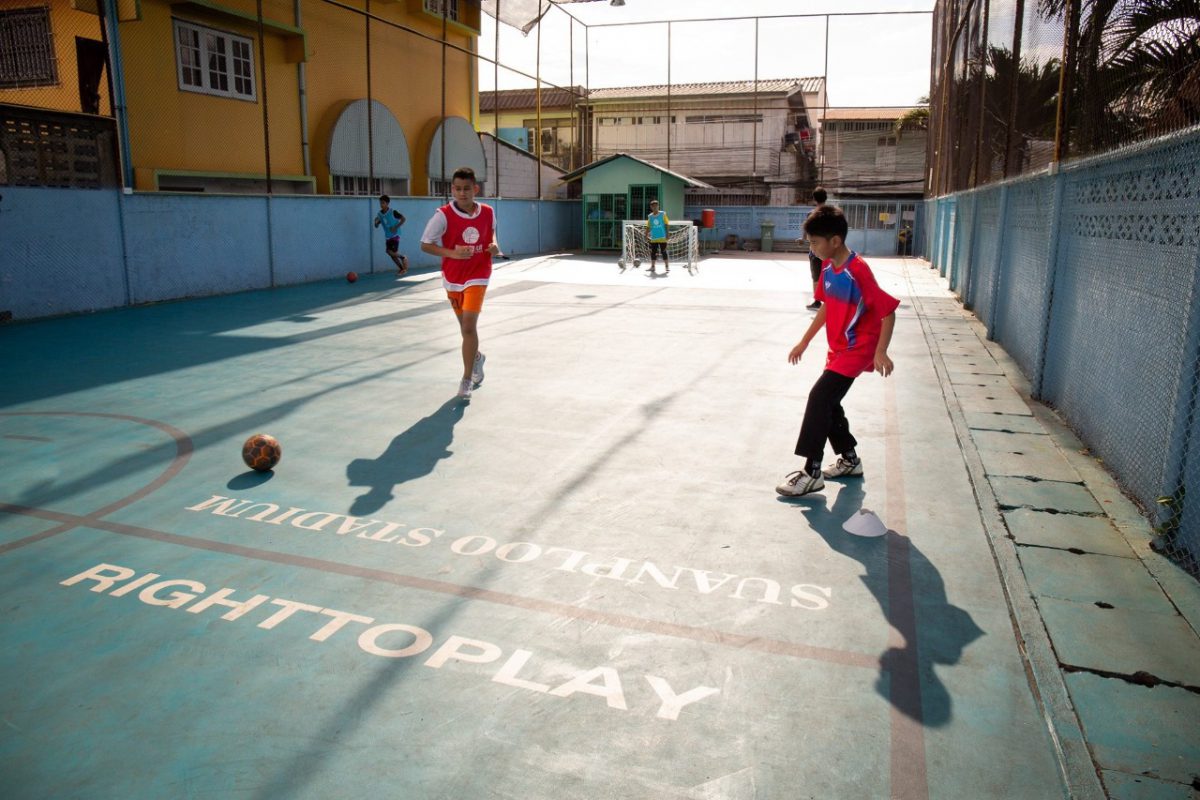
These placemaking efforts have helped in bringing the community closer together. The youth leaders also show marked improvements in leadership and other life skills. They can design high quality football sessions and deliver them by themselves now. As a result, youth leaders and community coaches have better coordination in their weekly football sessions. Youth leaders also end up taking a more prominent role in their communities, by being part of the community committee. Certainly, the relationship between children, youth and adults in the community has improved and there is a more positive perception overall of what young people can contribute. Finally, there has been a spillover effect in terms of other communities that are getting involved in the project activities. The football tournaments that are being organised are extremely popular, with sometimes more than 20 teams signing up from the project and neighbouring communities.
The project is truly built on community involvement. Since Right To Play was new to the communities, during the first year of the project, a lot of effort was put into building healthy relationships with the community leaders and members, youth and children. This has reaped benefits, as by the second year of activities, the project had become well-known and well-respected. Thanks to their enthusiasm, Right To Play has already been able to hand over certain activities to the communities themselves. For example, in some locations, youth leaders are leading football sessions with minimal support from Right To Play, and teams of community leaders / members / youth have been formed for the management and maintenance of the play spaces. Besides the activities and events organised as part of the project, there are also many more being organised by the community.
A challenge we have faced – besides the delays in rehabilitation due to late approvals from local authorities – is the low participation of girls in our project. The project has been focusing on football and the communities we are working in are Muslim communities. In general, girls have not been very interested in football. However, throughout the project, they have shown interest in some of the other activities, such as play days and Children’s Day celebrations. With additional funding secured for the expansion of the project, we have decided to broaden the type of play and sports we offer. This way we will be able to respond to the needs and wishes of both girls and boys in the community.
